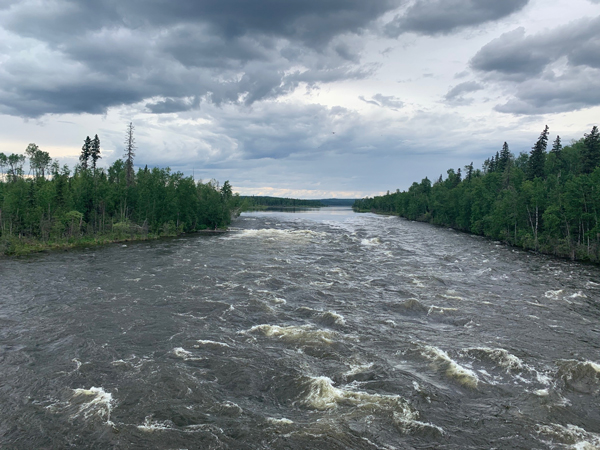Parkland Ambulance and the Lifesaving Society are reminding the public about water safety following recent accidents in Saskatchewan rivers and lakes, one of which was fatal.
On Friday, a six-year-old boy drowned in Sucker River, which is about 270 km north of Prince Albert and part of the Lac La Ronge Indian Band. Coun. Devin Bernatchez turned to Facebook on Friday asking the public for help in finding him, and early the next morning said the young boy’s body was recovered.
A Lifesaving Society news release said the drowning is a “somber reminder” of the strength of open water.
“The Lifesaving Society is saddened by all drowning incidents in the province, and we wish to remind everyone of the ever-present danger that open water such as lakes, rivers and streams presents to all of us,” said Lifesaving Society CEO Shelby Rushton.
“And now, with an increased water level on our two main river systems…water that once was shallow enough to walk in may be much deeper and have a stronger current.”
The province’s Water Security Agency sent a public advisory on Thursday about peak flows in the North and South Saskatchewan Rivers. It anticipates water levels in the North Saskatchewan River to rise to a similar level as it was in mid-May, with a peak flow of 1,500 m3/s.
Search efforts are ongoing to locate another missing boy, who’s also six years old, in Makwa Lake. Loon Lake RCMP first notified the public of the search on June 24.
The Lifesaving Society said it’s important to be cautious while in, on and around water. It recommends wearing a life jacket or personal flotation device during boating activities and for non-swimmers or weak swimmers.
Many people drown from walking into the drop offs to lakes when they thought they were in shallow water, it said.
It’s important to keep an eye on the weather—wind, rain and lightning are hazards. If any of these occur, the Lifesaving Society said you should leave the water immediately.
The Lifesaving Society also said it’s important to supervise children.
It’s not just crucial to supervise others in lakes and rivers, said Parkland Ambulance’s Lyle Karasiuk.
“If you have a toddler, for example, it only takes a mere few inches of water where the toddler can’t get themselves righted,” he said.
On Saturday, paramedics responded to the Candle Lake recreation area for a 15-year-old girl. Karasiuk said she escaped with minor injuries after the tube she was riding on collided with another boat.
“In this case, I can’t say with certainty that it was the result of too many boats on the lake or what the exact cause was, but it could have been a much more tragic incident,” said Karasiuk.
“Just be mindful, for folks, that (tubes) are uncontrollable. Have a plan, do so smartly.”
Karasiuk recommended that if the water does start to carry someone away, don’t jump in to save them. Instead, he said, extend a paddle or toss in a flotation device for them to grab on to.
“Often people say ‘Well, I’m a good, strong swimmer,” said Karasiuk—but sometimes that’s not enough to save you.
A lot of the large, deep lakes, such as Waskesiu or Candle Lake, still remain fairly cold. Karasiuk said it’s possible to get hypothermia, even in the summer months, if you’re in the water for too long.
He also advised against driving a boat impaired, and that it’s no different than driving a vehicle while under the influence of alcohol or drugs.


